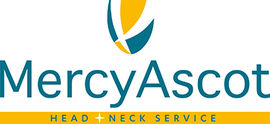Central Auckland > Private Hospitals & Specialists > MercyAscot >
MercyAscot Head and Neck Service
Private Service, ENT/ Head & Neck Surgery
Description
Comprehensive, multidisciplinary care for patients with head and neck disorders
Working alongside General Practitioners (GPs), MercyAscot Head and Neck Service is the only private hospital in New Zealand to provide a comprehensive, streamlined and multidisciplinary service from diagnosis through to rehabilitation and recovery for patients with conditions of the head and neck. Our one-stop diagnosis clinics (neck lump, salivary gland and facial fracture) provide fast access to treatment from early diagnosis, through to treatment and recovery – removing the need for multiple appointments. We understand the importance of clear communication and high-quality care of injured patients, and our head and neck team is committed to providing comprehensive and prompt support.
Specialty Areas
Neck Lump Clinic
Our multidisciplinary team is highly specialised in assessing, diagnosing, and managing neck lumps.
Facial Fracture Clinic
Our one-stop Facial Fracture Clinic offers ACC-covered patients with suspected sub-acute facial and nasal bone fractures fast and comprehensive diagnosis and treatment.
Salivary Gland Clinic
The MercyAscot Head and Neck Service provides a dedicated diagnostic programme for patients with salivary gland disorders.
Rhinology Clinic
MercyAscot Head and Neck Service's rhinology clinic is a specialist-led service offering comprehensive, multidisciplinary care for pateints with benign rhinological and nasal disorders.
Consultants
Note: Please note below that some people are not available at all locations.
-
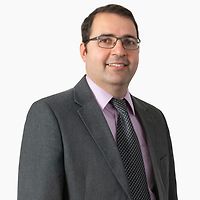
Dr Muammar Abu-Serriah
Oral & Maxillofacial Surgeon
Available at all locations.
-
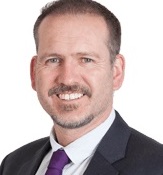
Mr Mark Izzard
Otolaryngologist, Head & Neck Surgeon
Available at all locations.
-

Mr Nick Lilic
Otolaryngologist
Available at Mercy Specialist Centre, 100 Mountain Road, Epsom, Auckland, 131 Shakespeare Road, Milford
-
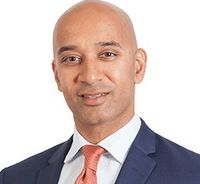
Mr Rajan Patel
Otolaryngologist, Head & Neck Surgeon
Available at all locations.
-
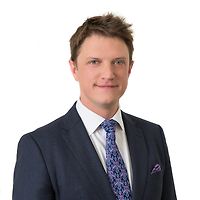
Mr Kevin Smith
Otolaryngologist, Head & Neck Surgeon
Available at all locations.
Dental Team
-

Dr Kim Gear
Oral Medicine Specialist
Common Conditions
Your tonsils are the oval-shaped lumps of tissue that lie on both sides of the back of the throat. Sometimes tonsils can become inflamed (red and swollen with white patches on them) as the result of a bacterial or viral infection; this is known as tonsillitis. If you have tonsillitis, you will have a very sore throat and maybe swollen glands on the side of your neck, a fever, headache or changes to your voice. In some cases, pus can be seen on the tonsils. Tonsillitis mostly occurs in young children and can be a recurrent condition (it keeps coming back). If the tonsillitis is caused by bacteria, antibiotics will be prescribed. If the tonsillitis is caused by a virus, treatment will usually consist of medications to relieve symptoms such as a pain killer. If tonsillitis occurs often over a period of two or more years, then surgical removal of the tonsils (tonsillectomy) may be considered.
Your tonsils are the oval-shaped lumps of tissue that lie on both sides of the back of the throat. Sometimes tonsils can become inflamed (red and swollen with white patches on them) as the result of a bacterial or viral infection; this is known as tonsillitis. If you have tonsillitis, you will have a very sore throat and maybe swollen glands on the side of your neck, a fever, headache or changes to your voice. In some cases, pus can be seen on the tonsils. Tonsillitis mostly occurs in young children and can be a recurrent condition (it keeps coming back). If the tonsillitis is caused by bacteria, antibiotics will be prescribed. If the tonsillitis is caused by a virus, treatment will usually consist of medications to relieve symptoms such as a pain killer. If tonsillitis occurs often over a period of two or more years, then surgical removal of the tonsils (tonsillectomy) may be considered.
If you find it difficult to pass food or liquid from your mouth to your stomach, you may have a swallowing disorder or dysphagia. Symptoms may include: a feeling that food is sticking in your throat, discomfort in your throat or chest, a sensation of a ‘lump’ in your throat, coughing or choking. A disorder may occur in any part of the swallowing process such as the mouth, pharynx (tube at the back of the throat that connects your mouth with your oesophagus), oesophagus (food pipe that takes food to your stomach) or stomach. Causes of dysphagia include: the common cold, gastro-oesophageal reflux, stroke or a tumour. Diagnosis may be by examination of a mucous sample or by viewing the pharynx, oesophagus and stomach using a small, flexible tube with a tiny camera on the end that is inserted down the back of your throat. Treatments for dysphagia depend on the causes, but may include: medication – antacids, muscle relaxants or medicine to slow down stomach acid production changes in diet and/or lifestyle surgery e.g. stretching or releasing a tightened muscle
If you find it difficult to pass food or liquid from your mouth to your stomach, you may have a swallowing disorder or dysphagia. Symptoms may include: a feeling that food is sticking in your throat, discomfort in your throat or chest, a sensation of a ‘lump’ in your throat, coughing or choking. A disorder may occur in any part of the swallowing process such as the mouth, pharynx (tube at the back of the throat that connects your mouth with your oesophagus), oesophagus (food pipe that takes food to your stomach) or stomach. Causes of dysphagia include: the common cold, gastro-oesophageal reflux, stroke or a tumour. Diagnosis may be by examination of a mucous sample or by viewing the pharynx, oesophagus and stomach using a small, flexible tube with a tiny camera on the end that is inserted down the back of your throat. Treatments for dysphagia depend on the causes, but may include: medication – antacids, muscle relaxants or medicine to slow down stomach acid production changes in diet and/or lifestyle surgery e.g. stretching or releasing a tightened muscle
- medication – antacids, muscle relaxants or medicine to slow down stomach acid production
- changes in diet and/or lifestyle
- surgery e.g. stretching or releasing a tightened muscle
Hoarseness can be described as abnormal voice changes that make your voice sound raspy and strained and higher or lower or louder or quieter than normal. These changes are usually the result of disorders of the vocal cords which are the sound-producing parts of the voice box (larynx). The most common cause of hoarseness is laryngitis (inflammation of the vocal cords) which is usually associated with a viral infection but can also be the result of irritation caused by overuse of your voice e.g. excessive singing, cheering, loud talking. Other causes of hoarseness include: nodules on the vocal cords – these may develop after using your voice too much or too loudly over a long period of time smoking gastro-oesophageal reflux disease (GERD) – stomach acid comes back up the oesophagus and irritates the vocal cords. This is a common cause of hoarseness in older people allergies polyps on the vocal cords glandular problems tumours. Diagnostic tests may include viewing the vocal cords with a mirror at the back of your throat or by inserting a small flexible tube with a camera on the end (endoscope) through your mouth. Sometimes tests may be done to analyse the sounds of your voice. Treatment depends on the cause of the hoarseness and may include resting your voice or changing how it is used, avoiding smoking, medication to slow stomach acid production and sometimes surgical removal of nodules or polyps.
Hoarseness can be described as abnormal voice changes that make your voice sound raspy and strained and higher or lower or louder or quieter than normal. These changes are usually the result of disorders of the vocal cords which are the sound-producing parts of the voice box (larynx). The most common cause of hoarseness is laryngitis (inflammation of the vocal cords) which is usually associated with a viral infection but can also be the result of irritation caused by overuse of your voice e.g. excessive singing, cheering, loud talking. Other causes of hoarseness include: nodules on the vocal cords – these may develop after using your voice too much or too loudly over a long period of time smoking gastro-oesophageal reflux disease (GERD) – stomach acid comes back up the oesophagus and irritates the vocal cords. This is a common cause of hoarseness in older people allergies polyps on the vocal cords glandular problems tumours. Diagnostic tests may include viewing the vocal cords with a mirror at the back of your throat or by inserting a small flexible tube with a camera on the end (endoscope) through your mouth. Sometimes tests may be done to analyse the sounds of your voice. Treatment depends on the cause of the hoarseness and may include resting your voice or changing how it is used, avoiding smoking, medication to slow stomach acid production and sometimes surgical removal of nodules or polyps.
- nodules on the vocal cords – these may develop after using your voice too much or too loudly over a long period of time
- smoking
- gastro-oesophageal reflux disease (GERD) – stomach acid comes back up the oesophagus and irritates the vocal cords. This is a common cause of hoarseness in older people
- allergies
- polyps on the vocal cords
- glandular problems
- tumours.
Non-cancerous masses such as cysts are often removed surgically to prevent them from pressing on nerves and other structures in the head and neck.
Non-cancerous masses such as cysts are often removed surgically to prevent them from pressing on nerves and other structures in the head and neck.
Non-cancerous masses such as cysts are often removed surgically to prevent them from pressing on nerves and other structures in the head and neck.
Cancerous masses spread to surrounding tissues and may be: Primary – they arise in the head or neck. Mostly caused by tobacco or alcohol use Secondary – they have spread from a primary tumour in another part of the body. Cancers may be treated by a combination of radiotherapy, chemotherapy and surgery.
Cancerous masses spread to surrounding tissues and may be: Primary – they arise in the head or neck. Mostly caused by tobacco or alcohol use Secondary – they have spread from a primary tumour in another part of the body. Cancers may be treated by a combination of radiotherapy, chemotherapy and surgery.
Cancerous masses spread to surrounding tissues and may be:
- Primary – they arise in the head or neck. Mostly caused by tobacco or alcohol use
- Secondary – they have spread from a primary tumour in another part of the body.
Cancers may be treated by a combination of radiotherapy, chemotherapy and surgery.
Public Transport
The Auckland Transport Journey Planner will help you to plan your journey.
Parking
Parking is available on-site at all locations. Please take care to complete parking payment when parking on-site at Mercy Specialist Centre.
Mobility Parking
Mobility parking and wheelchair access is available at Mercy Hospital
Website
Contact Details
Mercy Specialist Centre, 100 Mountain Road, Epsom, Auckland
Central Auckland
-
Phone
(09) 630 2920
-
Fax
(09) 630 2923
-
Mobile
022 450 2245 (urgent)
Healthlink EDI
aklheadn
Email
Website
Mercy Hospital, 98 Mountain Road, Epsom, Auckland
Central Auckland
-
Phone
(09) 630 2920
-
Fax
(09) 630 2923
-
Mobile
022 450 2245 (urgent)
Healthlink EDI
aklheadn
Email
Website
131 Shakespeare Road, Milford
North Auckland
-
Phone
(09) 630 2920
-
Fax
(09) 630 2923
-
Mobile
022 450 2245 (urgent)
Healthlink EDI
aklheadn
Email
Website
Was this page helpful?
This page was last updated at 9:58AM on March 28, 2024. This information is reviewed and edited by MercyAscot Head and Neck Service.

